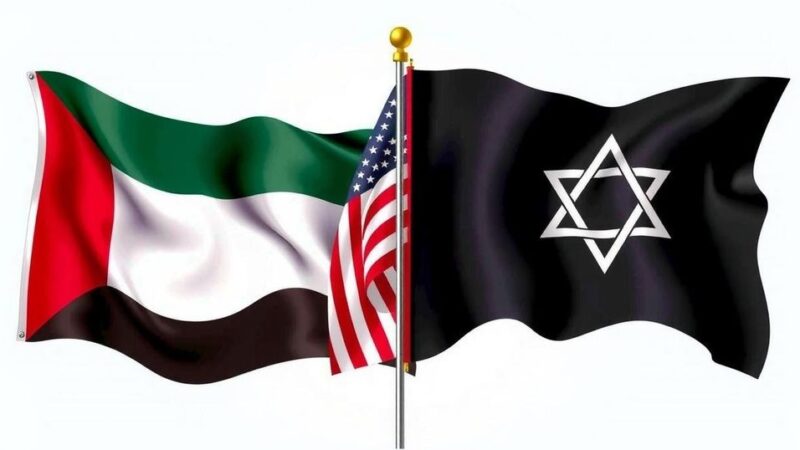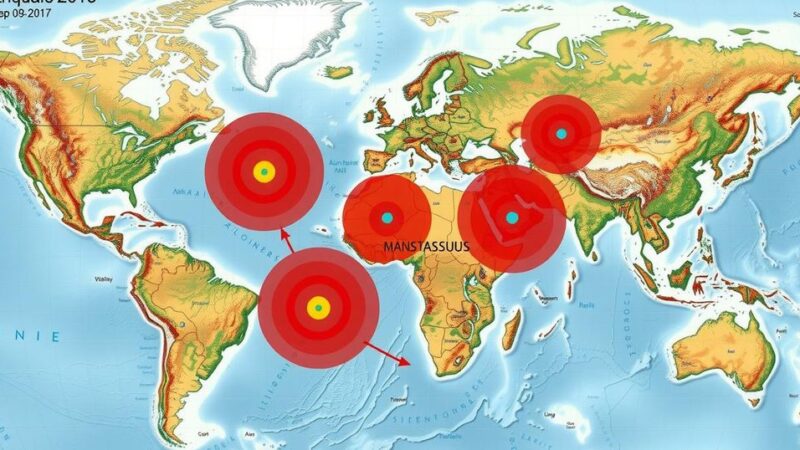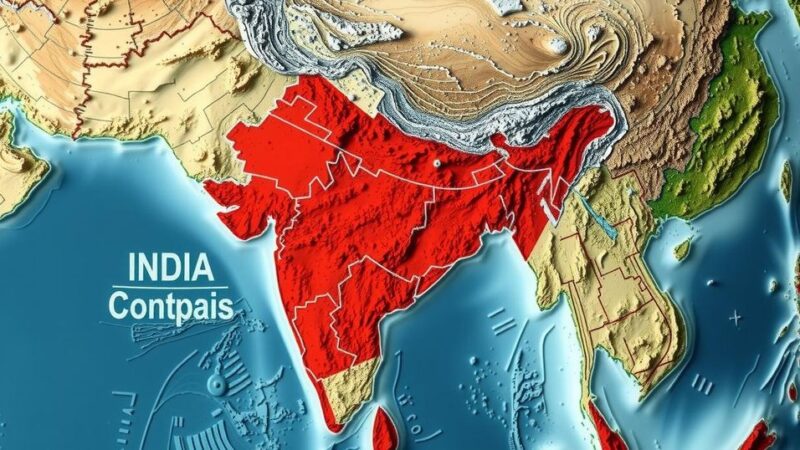Turkey and Israel are facing escalating tensions, particularly due to recent developments in Syria following Turkey’s support for Hamas amid the ongoing Gaza conflict. The situation is further complicated by Turkey’s military ambitions in Syria and its implications for Kurdish autonomy, increasing the likelihood of direct confrontation. The historical context of their strained relations, characterized by past grievances, adds layers of complexity to their diplomatic exchanges.
The deteriorating relationship between Turkey and Israel is entering a precarious phase due to escalating tensions in Syria, which could escalate into military confrontation. Recent protests in Istanbul against Israel, fueled by the ongoing conflict in Gaza, demonstrate growing anti-Israeli sentiment in Turkey, encouraged by President Erdogan. The current war, ignited by Hamas’s assault on October 7, 2023, has broadened into a regional conflict, prompting Erdogan to reevaluate Turkey’s stance towards Israel as he supports Hamas more assertively.
The ousting of the Assad regime has further complicated the landscape as Turkish-backed Islamist rebels threaten US-supported Kurdish groups in Syria, which Israel has quietly allied with. This geopolitical shift could embroil Turkey and Israel into direct conflict, especially as both nations assert their interests in the region. Professor Efrat Aviv highlighted the unprecedented potential for military confrontation, exacerbated by Turkey’s proximity to Israel following Erdogan’s aggressive posturing towards curtailing Kurdish autonomy.
Historical context reveals that Turkey and Israel have had a tumultuous relationship for over a decade, oscillating between diplomatic exchanges and outright hostility, particularly after the Gaza flotilla incident in 2010. Erdogan’s relentless criticism of Israeli policies towards Palestinians has culminated in strained relations, notably following the war against Hamas, where Turkey accused Israel of genocide. The lack of direct flights between the two nations and a dramatic decline in tourism exemplifies the chilling effects of these tensions.
As both countries engage militarily in differing areas of Syria, the risk of confrontation looms larger. Erdogan seeks to consolidate Turkish dominance in Syria, establishing a pro-Turkish regime, while Israel aims to counter Iranian influence through its tacit support of Kurdish factions. This dynamic is further complicated by domestic pressures within Turkey that compel Erdogan to take a hardline stance against Israel. Experts predict that as long as Erdogan remains in power, the relationship will only deteriorate further.
Nonetheless, both nations might remain engaged diplomatically, as their geopolitical interests necessitate some level of interaction, especially with regard to the Palestinian territories. Despite nationalist rhetoric on both sides, a full-scale military confrontation would be a significant deviation from historical patterns in the region. Cautious diplomacy appears to be imperative as each nation navigates their respective security concerns without exacerbating an already volatile situation in the Middle East.
The relationship between Turkey and Israel has been characterized by volatility and tension, largely shaped by historical grievances and political maneuvers. Over the past decade, the two countries have faced numerous diplomatic crises, primarily revolving around the Palestinian issue, with Erdogan emerging as a staunch defender of Palestinian rights. The ongoing conflict in Syria, particularly the implications of the Assad regime’s fall, applies additional pressure on the already strained relations, making geopolitical calculations more complex as both nations maneuver to assert their influence while managing the threat of expanded conflicts.
In summary, the intensifying tensions between Turkey and Israel, particularly in the context of the ongoing conflict in Syria, underscore the precariousness of their relationship. The mutual interests both nations maintain may provide a buffer against outright confrontation; however, the combination of Erdogan’s domestic pressures and his unwavering support for Hamas complicates any potential for rapprochement. Observers indicate that the unfolding situation in Syria could lead to unforeseen military confrontations, presenting significant geopolitical challenges for both Turkey and Israel.
Original Source: www.jpost.com







